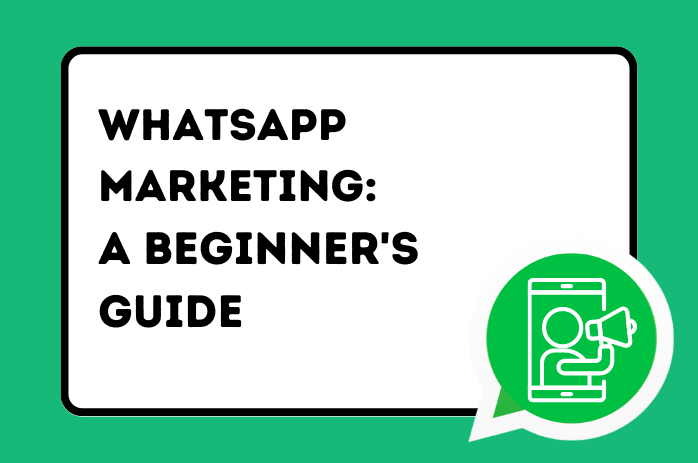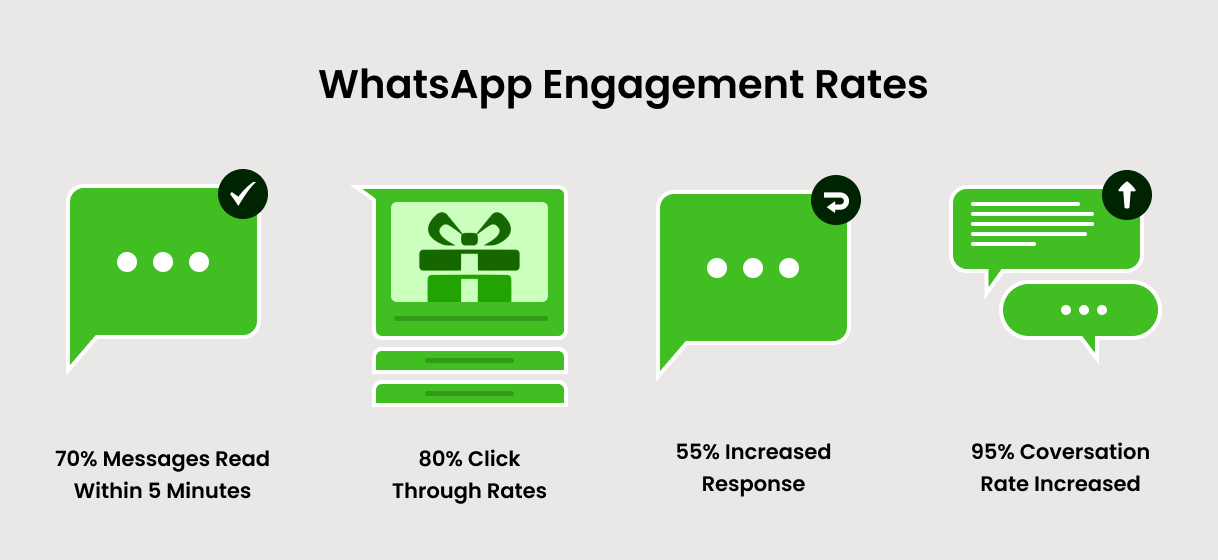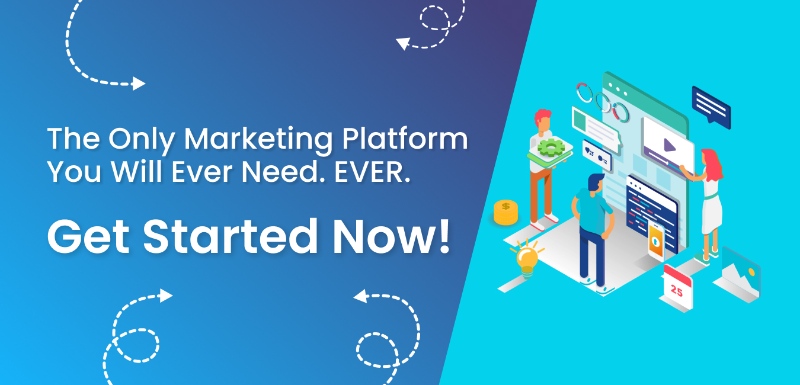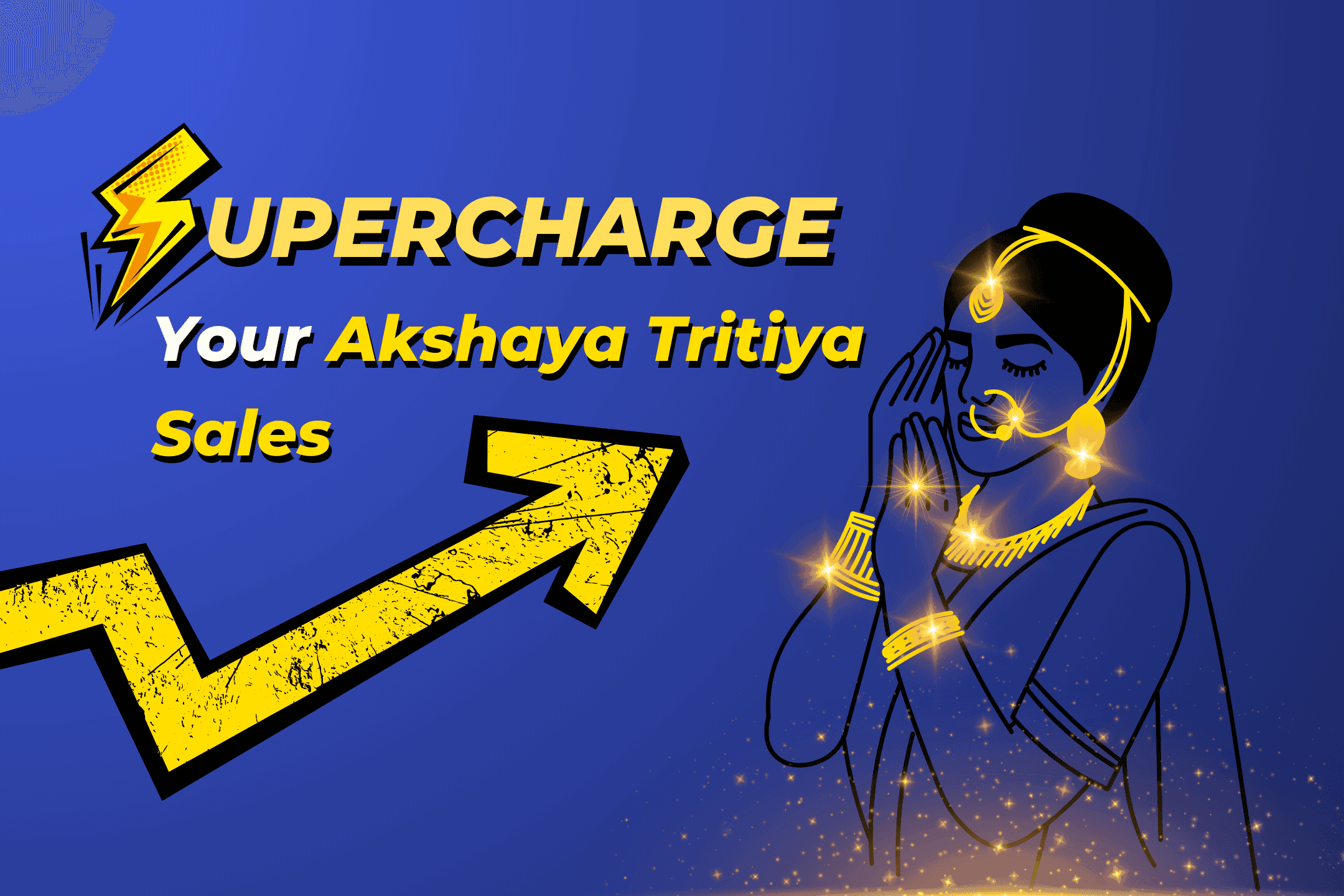
Gone are the days when advertising on TV was the only way to grab the attention of a customer. Hardly anyone reads a newspaper, or glances at ads in one.
Hence, businesses are now resorting to Social media for advertising. Facebook, Instagram, Twitter you name it.
One such medium that is often undervalued is not really a social media app, but a messenger app.
Yes, WhatsApp!
A messaging app is highly effective in reaching the customers as the open-rates are a whopping 98%. This means 98% guaranteed eyes on your brand.

This is much better than Twitter or Instagram since on those apps a user can simply scroll past the ads mindlessly without giving them a second thought.
Once you have their eyes, you have their attention. And once you have their attention, you can sell.
Not just sell, you can also interact with them on a personal level and improve your chances of up-selling.
The Basics Of WhatsApp Marketing
Marketing using WhatsApp is WhatsApp Marketing. Simple, right?
Not really.
It is quite different from Facebook, Instagram, and Twitter since you cannot run ads.
WhatsApp is essentially ad-free, and the creators intend to keep it that way.
The marketing that happens on WhatsApp is usually personalized and one-to-one. This changes the whole marketing ball-game. It’s personalized since the messages usually carry the customer’s name and goes directly to their inbox.
In a way, its akin to e-mail marketing. But in email marketing, the recipient can block mails or the mail may be sent to spam - such is not the case with WhatsApp. All messages will inadvertently go to the inbox. And that’s the biggest advantage.
The Essentials for WhatsApp Marketing
Here are a few things that are vital to make WhatsApp marketing work for your business.
1.QR codes
Customers and Leads should be able to reach out to you just by scanning the code. Scanning the code would take them to your chat screen where they can initiate a conversation with you. You can also have template ready wherein they would just have to press send.
These QR codes can be on your business cards, receipts, delivery packages, on your website or even on other social media pages.
2. Greetings and Instant Replies
Greeting and Instant replies are nothing but automated messages that are pre-programmed and do not need humans to send the message.
Instant replies are also programmed into WhatsApp such that an appropriate and relevant response is sent out to the query.
3. Chatbots
A gradual extension of greetings and instant replies is is a WhatsApp chatbot.
A WhatsApp chatbot helps your customer traverse the entire journey of purchasing and customer care on WhatsApp itself.
Chatbots can be as innovative as you would like to make it depending on your business and sector.
As an Apparel brand, you could send out polls for designs of clothes, and put into production the one that gets the highest votes.
Adidas uses WhatsApp for marketing by finding replacements for clubs when a team member bails at the last minute. The new replacement would turnup in an Adidas jersey.
4. Attractive messages
The one advantage WhatsApp gives you is the use of emojis in your text to make it more attractive. Use of relevant emojis makes messages more personable and readable. Since WhatsApp is ultimately a messaging platform used mostly by friends and family, the use of emojis is not out-of-the-ordinary. In fact, use of emojis makes it more suitable to the platform.
The messages should not be bulky; they should be broken down to paras or points to make reading quicker and easier. The message that is to be conveyed should also be concise.
Click here to get some WhatsApp marketing ideas.
5. Customer Support
WhatsApp is at the fingertips of every single customer. If a customer has a query or a complaint, he can reach out directly to the brand via WhatsApp. The brand can respond to the customer in the blink of an eye.
This way the customer’s satisfaction with the service is also high.
These are just a few of the hundred different ways WhatsApp can help you talk to your customers.
Partner with Zithara to get the full power of WhatsApp.
Zithara will not help you with WhatsApp, but also with a Rewards System, Feedback Collection, Referral System and Complete Insights!
Get in touch with us now at www.zithara.com

FAQs
1. Is WhatsApp marketing legal?
It is legal if approval is granted by WhatsApp. WhatsApp does not allow sending of unsolicited marketing messages without WhatsApp's prior consent.
2. How much does WhatsApp marketing cost?
The cost of WhatsApp marketing depends on whether the conversation is user-initiated or business-initiated.
3. Can you advertise on WhatsApp?
You cannot post banner ads like you would on Facebook. You can, however, run click-to-chat ads on Facebook that would redirect the person who clicks to the WhatsApp chat screen.
4. Is WhatsApp direct marketing?
Yes. Since brands use personalized messages to reach out to customers and interact with them, it is considered direct marketing.
5. Do I need to pay for WhatsApp Business?
No. It is free, but it can be used only on one device for one business phone number.
6. Is WhatsApp API free or paid?
Getting a WhatsApp API is free, but the conversations on it are charged. The charges are based on the country of the recipient and whether the conversation is user-initiated or business-initiated
7. Can I sell my products on WhatsApp?
Yes, you can. All you need to do is download the WhatsApp Business App and add information like Business name, an image, website information and other relevant details.
8. How many messages can I send on WhatsApp business per day?
There are different tiers with varying messaging limits.
1k business-initiated conversations with unique customers in a rolling 24-hour period.
10k business-initiated conversations with unique customers in a rolling 24-hour period.
100k business-initiated conversations with unique customers in a rolling 24-hour period.
Unlimited number of business-initiated conversations in a rolling 24-hour period.
9. How do I start marketing on WhatsApp?
The first thing any business should do is get the WhatsApp Business App. It is available on both Android and iOS. It provides features that give an advantage over the regular WhatsApp like Automate, Sort and Quick Response.
10. What are the benefits of WhatsApp marketing?
It has a higher conversion rate, shows better sales, and is very cost-effective.
11. How can I use WhatsApp to promote my business?
You can use the WhatsApp Business App to communicate with customers instead of using the normal WhatsApp. WhatsApp Business App lets you use multiple features like automate, sort, and labels that are not available on the usual app.
12. Which app is best to sell items?
With the number of users growing exponentially, WhatsApp has the widest reach and is best to sell products.
13. How do I list my products on WhatsApp?
On the WhatsApp Business App, WhatsApp allows businesses to list their products on the app. A maximum of 500 products can be added to the list. Details like product image, price, service name, description, website link can be added as well.
14.What is the best time for WhatsApp marketing?
There is no single best time. It all depends on the target demographic. For some, it might be morning and for some evening. Businesses should optimize the timing by checking the open-rates and deciding what time is most suitable for their customers.
15. Who is the target market for WhatsApp?
According to statistics, customers aged 15-45 are the ideal target market for using WhatsApp as a marketing strategy. But with the growing acceptance of WhatsApp by those aged 50+, WhatsApp has become a very versatile platform.
16. What can you sell on WhatsApp?
Products ranging from Jewelry and Clothing to Home Decor can be sold on WhatsApp. On the other hand, drugs (recreational/prescription), tobacco items and its paraphernalia, alcohol, and medical and health care products cannot be sold on WhatsApp.
17. Which companies use WhatsApp Business?
Over 500 million companies use WhatsApp Business globally. Some big names include Adidas, Financial Times, Netflix and BookMyShow.
